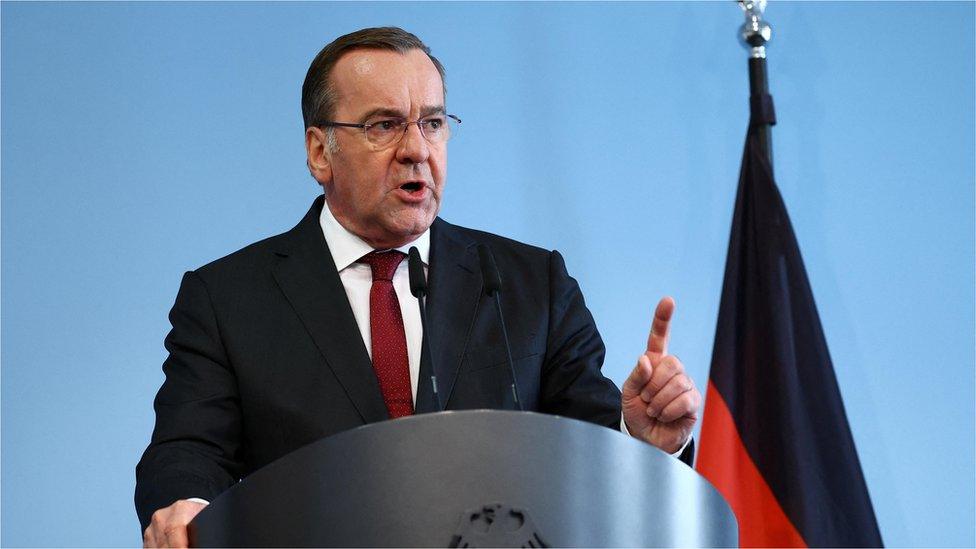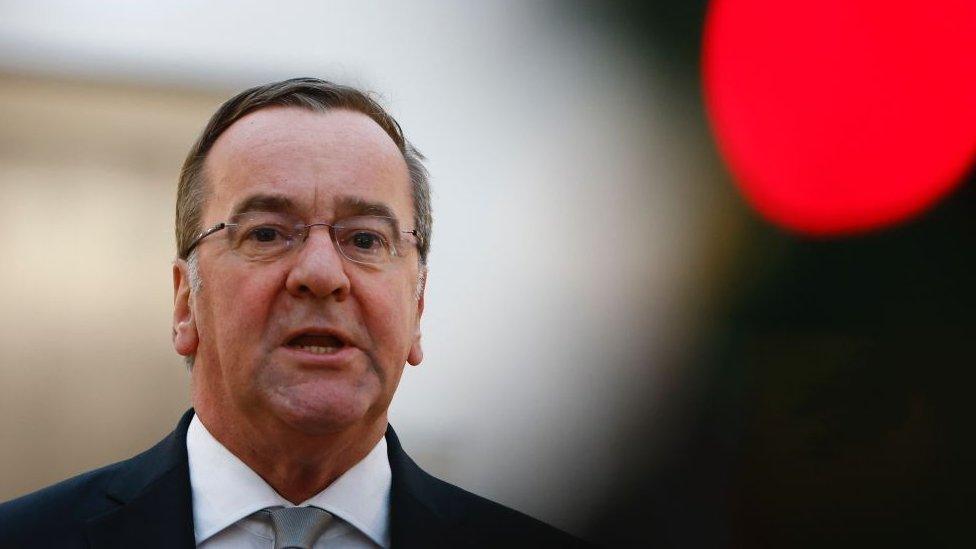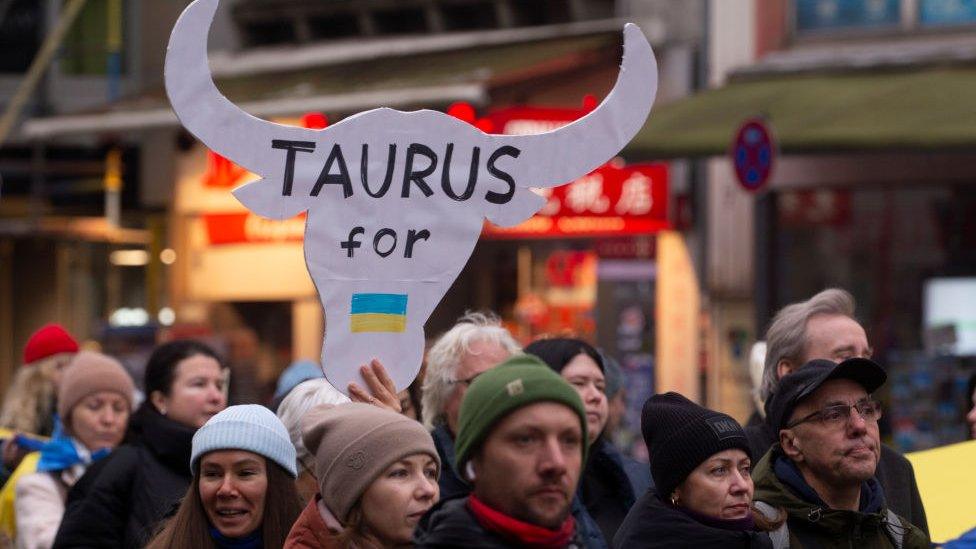Ukraine war: German call leak due to individual error, minister says
- Published

German Defence Minister Boris Pistorius said partners' trust in Germany was "not broken"
A meeting of senior German air force officials was leaked by Russian sources after an "individual error", Defence Minister Boris Pistorius has said.
He said an investigation had ruled out that a Russian spy had taken part in the call without being noticed.
Mr Pistorius said the call had been leaked as a participant had dialled in via an insecure line.
This made it possible for Russia to intercept the conversation, he said.
In the recording, four senior German military officers are seemingly heard discussing the prospect of Ukraine using German-made Taurus cruise missiles to hit the Kerch Bridge, which links Russia to the Crimean peninsula, illegally annexed from Ukraine in 2014.
German Chancellor Olaf Scholz has repeatedly ruled out sending the Taurus missiles to Ukraine.
Mr Pistorius said the call took place on a more secure version of the Webex conference platform, hosted on German army servers.
Russia's state-run RT channel posted an audio recording of the meeting last week.
Speaking at a press conference on Tuesday, he said one participant had dialled into the meeting via an "unauthorised connection", leading to the leak.
Mr Pistorius confirmed that a disciplinary investigation was under way but suggested he didn't want to see heads roll.
"At the moment, personal consequences are not on the agenda. I won't sacrifice my best officers for [Russian President Vladimir] Putin's games," he said.
The insecure line was used by an officer who dialled in from Singapore, where a military air show took place at the end of February.
The breach has sparked major concerns about Germany's security among allies, including France and the UK.
But Mr Pistorius denied that allies' trust in Germany had been broken.
"Everyone knows of the danger of such interceptions and all know there is no absolute security," he said.
The Kremlin framed the recording as proof that the West is directly involved in the conflict in Ukraine.
Spokesman Dmitry Peskov said on Monday that the leaked conversation "suggests that the Bundeswehr is discussing substantively and specifically plans to strike Russian territory".
Related topics
- Published4 March 2024

- Published2 March 2024
